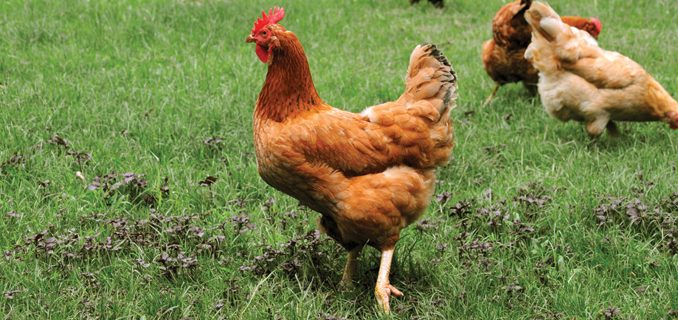
Chickens are a great addition to any backyard. Chickens have vibrant personalities and if you decide to house them, they will not only reward you with friendship, but provide up to six eggs per week per chicken, rid your backyard of excess insects, keep your weeds down and supply an amazing lot of poop which can be composted into fertiliser.
Store bought chicken eggs often arrive from farms in which chickens are crammed together without room to walk, and fed bland, non-nutritious feed mixtures made from soy or cottonseed. No carton designation – even free-range – guarantees that birds did not suffer mistreatments such as beak cutting.
Backyard chickens that have some ability to forage for themselves, dust bathe and roost nightly are proven to be healthier and produce organic eggs that contain less cholesterol, less saturated fat, more vitamin A, more omega-3 fatty acids, more vitamin E and more beta carotene than factory farmed eggs.
Here are the ins and outs to buying, caring for and maintaining your chickens’ happy lifestyle!
Which chicken?
Some breeds are great egg layers, some are more calm, and others would be good for ethical meat. This article is directed toward egg-laying chickens, so I recommend the ISA Brown as a sweet and beautiful hen that typically provides 300-350 big brown eggs per year!
Australorps are an Australian variety of chicken that are also calm, friendly and great layers.
How to Coop
Build your own with a few basic tools and recycled materials, or buy a ready-made chook shed, even online.
Chickens need an outdoor run for moving around happily in, an area of dust for cleansing themselves, a hen house that includes boxes for nesting and laying, and a perch where they will sleep. Protect the chicken area with a fence of wire. Chickens can be let out during the day to roam around the whole backyard if desired, as long as vegetables or other special plants are fenced off from their gobbling ways.
Eating what?
Chickens will eat up all of your leftovers and vegetable scraps, thus saving a lot of material from landfill. Chickens should have a constant supply of water and organic pellets. Throw the scraps over the fence every morning, but avoid giving them citrus, avocado skins, and raw green potato peels as these are toxic.
Make Fertiliser!
High nitrogen, phosphorus and potassium levels in chicken manure make it one of the best fertilisers around for your vegetable garden. The poo needs to be composted to make it safe to use on plants, due to the high quantities of ammonia present.
Collect soiled bedding around once a week, including hay and poop, and place it in a compost bin with other brown elements such as leaf litter. Water the mixture, continue adding over time as necessary, and turn the pile every few weeks. Within six to nine months you will have created an amazing, composted fertiliser for your garden.
Words by Lucia Moon


